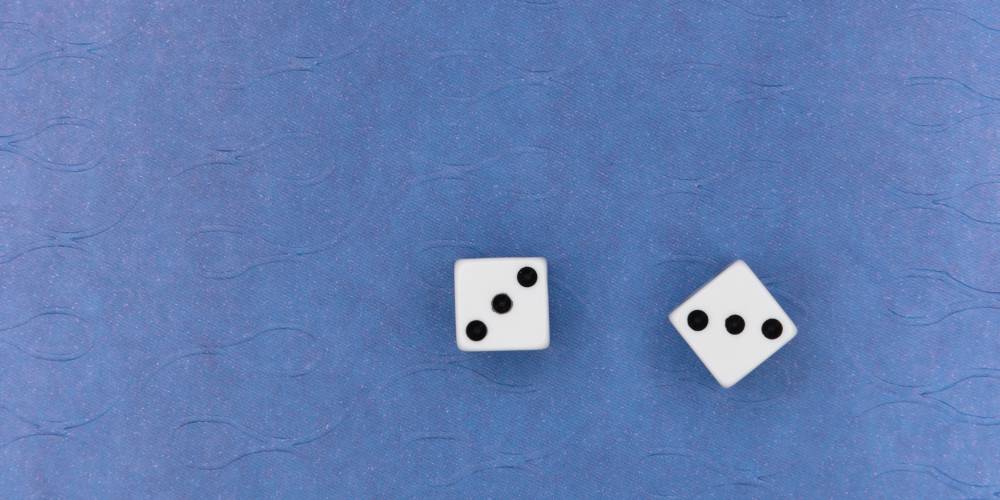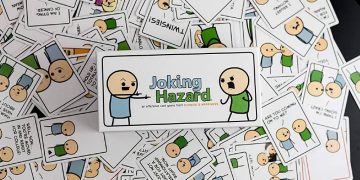To be clear up front: this article is NOT about drinking games where actions or mistakes cause you to drink. It's about board games that play well while drinking and won't get in the way.
(Of course, most of these board games can easily be made into drinking games with one or two of your own rules for when to take a drink.)
So, what makes a board game good for drinking? Well, here are the factors I personally consider to decide whether a particular board game is a good option with beer or wine in play:
- Simple rules. When you're drinking, you don't want too much rules overhead; the more you drink, the harder it'll be to remember complex rules and interactions. So, the simpler, the better.
- Simple decisions. Even simple games can have deeply thinky gameplay (e.g. Go). You don't want a large decision space when drinks are involved. You want snappy tasks and room for chit-chat.
- Not many components. Every moving piece is an opportunity to be accidentally bumped, lost, or broken—and if someone happens to spill their drink, you don't want an entire board ruined. Cheap games without a lot of pieces are ideal for drinking.
Any game that excels in those three criteria is a perfect board game for drinking. (Many party games actually aren't a good fit because they often have too many components.) Plus, any game that meets these criteria is also a great game to play in a pub!
Also, I won't be including Cards Against Humanity or games like it because we have an entire article on those kinds of games:
13. Win, Lose, or Banana
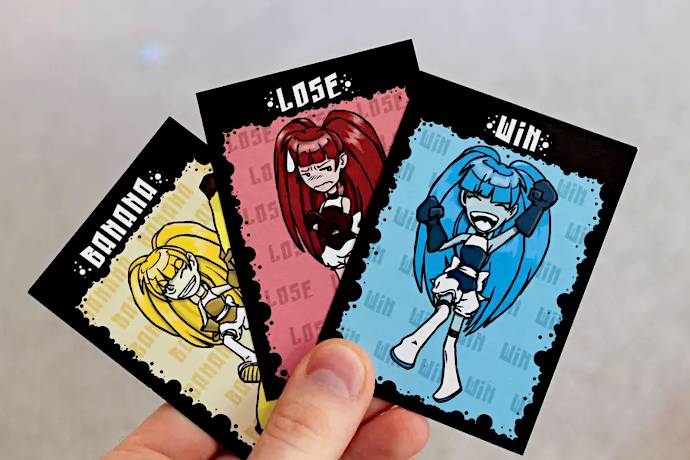
Players supported: 3 players
Average playing time: 1 minute
Win, Lose, or Banana might just be the fastest game you'll ever play—but it's so simple (and stupid) that it's perfect for when you just want to hang back and have fun with drinks around.
The game is played with three players. There are three cards: Win, Lose, Banana. Cards are randomly dealt out and whoever gets Win is the active player. Their goal is to suss out which player got Banana.
There's no strategy. This is a game of pure bluffing with a bit of luck mixed in. But it's so quick and silly that you can't help but have fun, and it's so easy to play over and over again. (If you want to kick it up a notch, Win can take a sip if they fail to find Banana!)
Note: You probably won't find Win, Lose, or Banana for sale anymore. But that's fine because you can play with a regular deck of playing cards: King for Win, Ace for Banana, and Joker for Lose.
12. The Mind
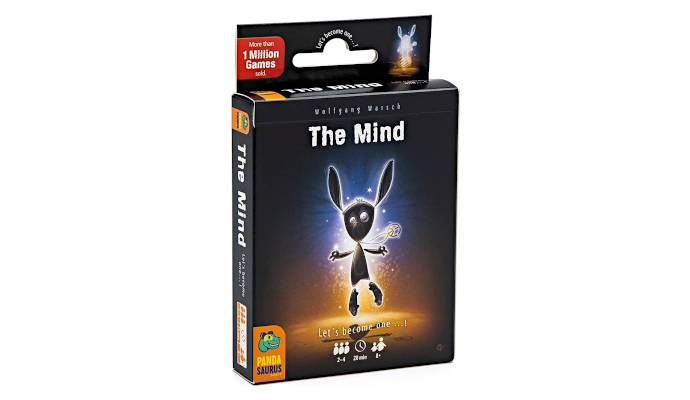
Players supported: 2 to 4 players
Average playing time: 15 to 20 minutes
The Mind is a cooperative game where nobody can talk. The deck consists of numbers 1 through 100 and a few cards are dealt out to each player at the start of a round.
The goal is for everyone to play their cards in ascending order. But you don't know what everyone else is holding and you can't talk at all, and therein lies the challenge. You all need to be of one mind.
The Mind is as much an experimental experience as it is a game. It seems impossible at first, but you'll soon unlock the secret to playing this game—and once you do, it's such a magical moment.
11. Timeline
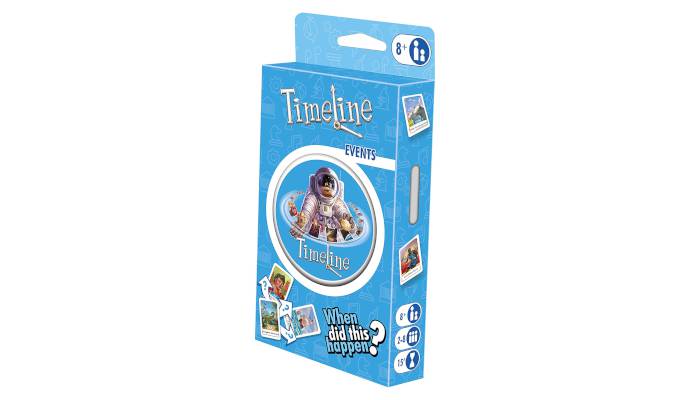
Players supported: 2 to 8 players
Average playing time: 10 to 20 minutes
In Timeline, players are dealt a hand of four cards—but the cards in this game consist of various events from throughout human history. For example, "The Empire State Building completed" or "Woodstock."
The backside of every card has the year when that event happened. Players take turns playing their cards to a shared timeline, trying to fit their events into the timeline relative to the events already in it.
You don't need to know history to be good at Timeline, but the best part is hearing everyone's thought processes as they try to reason where an event might go. There will be lots of laughs along the way, and you may even learn a thing or two.
10. No Thanks!
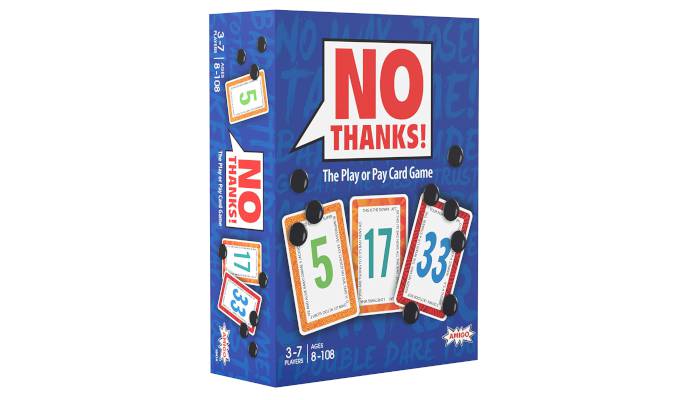
Players supported: 3 to 7 players
Average playing time: 15 to 30 minutes
No Thanks! is played using a special deck of cards numbered 3 through 35 and a set of chips that players will be using in the game.
The goal is to score the least amount of points, with each card's number being its point value. Every round, one card is revealed and players take turns saying "No thanks!" to taking that card—but they must pay one chip (which goes to the card) to do so.
If someone decides to take the card, they also get all the chips that were paid to it. At the end, chips are worth -1 point each.
Now here's the twist: if you collect a sequence of cards, the entire sequence is only worth the value of the lowest card in the sequence. This seemingly small twist is the real core of the game.
Even without drinks in hand, No Thanks! is a fantastic reverse-bidding game with a whole lot of push-your-luck to it. It's silly fun and it's quick enough to play a few times in a row.
9. Similo
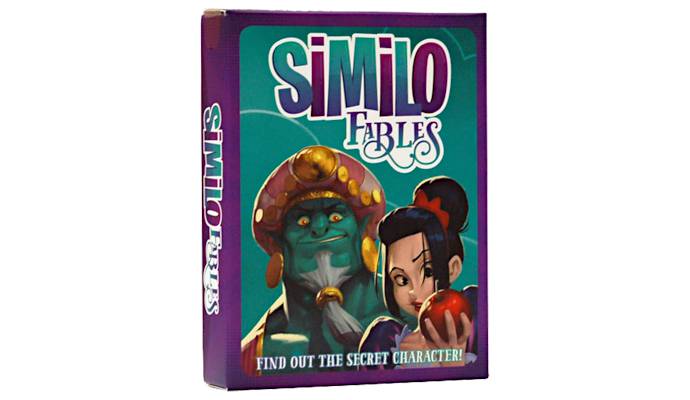
Players supported: 2 to 8 players
Average playing time: 10 to 15 minutes
Similo is a cooperative deduction game played with a randomized grid of character cards. One player is the game master who can't speak and must help the other players guess the correct character.
They do this by playing other character cards and marking them as either "similar" or "different" to the target character. It's up to the players to decode what that means, then eliminate characters from the grid.
If they can eliminate all the way to the end and successfully pick the right target character, everyone shares victory. (If you want to raise the stakes, have everyone drink if you lose!)
8. Cheating Moth
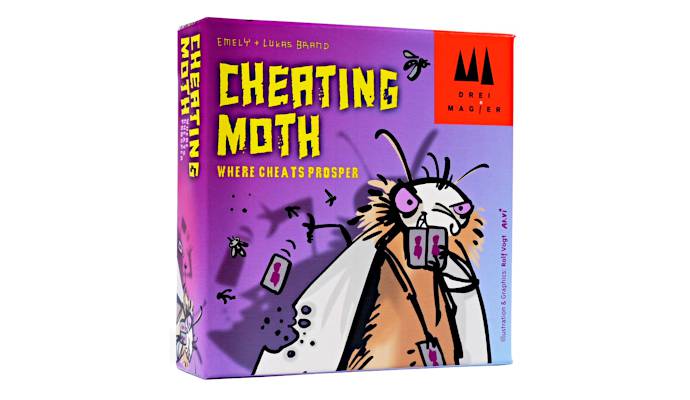
Players supported: 3 to 5 players
Average playing time: 20 to 30 minutes
Cheating Moth is a simple game: on your turn, play a card to the discard pile. Your card must be exactly one higher or lower than the card on the discard pile. If you can't, draw a card instead.
Or you can cheat instead! As long as your hand of cards remains above the table at all times, you can do whatever you want to get rid of your cards (but only one card at a time). Drop them on the ground, hide them in your sleeve, be as creative as you can be!
In Cheating Moth, certain cards can never be played to the discard pile and must be discarded by cheating. However, one player is also the Guard Bug. If they spot you cheating, you have to take back your last cheated card and you become the new Guard Bug.
7. Coup

Players supported: 2 to 6 players
Average playing time: 15 to 30 minutes
Coup is a pure bluffing game—and games like that can be extremely fun (and funny) when people are drinking.
In Coup, everyone is dealt two random cards that have hidden identities. Your hidden identities determine which special actions you can take on your turn. But here's the twist: you can claim to have any identity, so you can lie and take whatever special action you want to take!
The thing is, anyone can challenge you if they think you're lying. If you ARE lying, you permanently lose one of your two cards. If you AREN'T lying, the challenger loses a card and you get to replace your card with a new one (otherwise everyone would know what you have).
When you lose both cards, you're eliminated. Whoever remains to the very end is the winner.
6. Love Letter
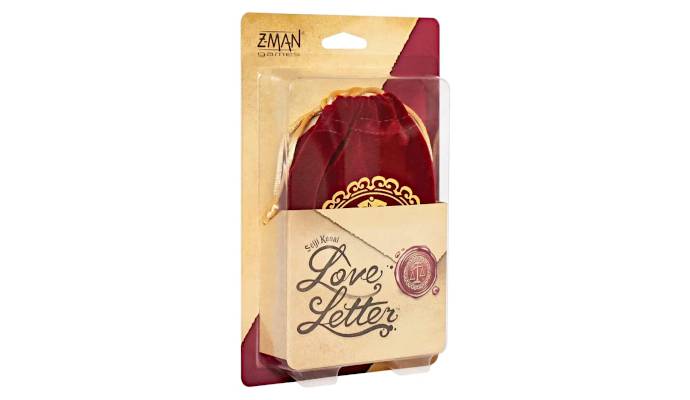
Players supported: 2 to 4 players
Average playing time: 5 to 10 minutes
Love Letter is the ultimate microgame that strikes an incredible balance between simplicity and depth. The entire game is only 16 cards and the gameplay is summed up as "draw one, play one"—but beneath all that is a fascinating game of bluffing and deduction.
Every player has one card in hand and the goal is to have the highest value card when the draw pile runs out. You draw a card, then play one of your two cards. But cards have special actions when played.
As players play cards, you gain more information about what's remaining in the deck and why someone might've played what they played. When you're able to see through that haze, Love Letter shines.
The fact that Love Letter is so portable and quick to play—about 5 minutes per game—makes it one of the best card games to bring with you to an outing. It plays especially well in pubs!
5. One Night Ultimate Werewolf
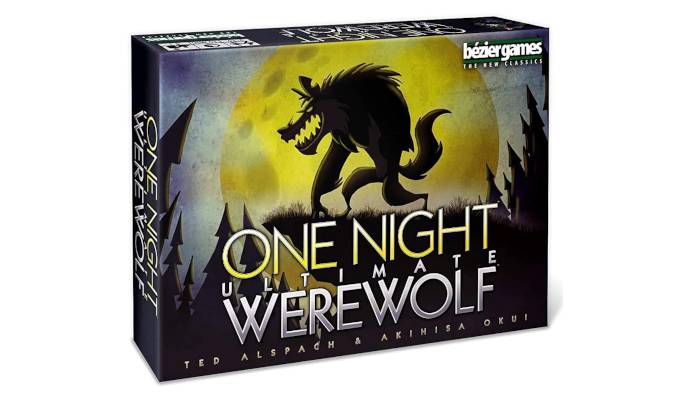
Players supported: 3 to 10 players
Average playing time: 5 to 15 minutes
If you've ever played Werewolf (also called Mafia), you might like the concept but hate certain aspects of it—the need for a moderator, the boring villager roles, the player eliminations, etc.
Well, One Night Ultimate Werewolf fixes all of that and distills the entire experience down into a single night.
Players are each dealt a special role and must work together to suss out the Werewolves among them. Plus, the game is app-assisted with a mobile app serving as the moderator.
And there's only one voting phase—if you don't get the Werewolves on the first night, that's game over!
One Night Ultimate Werewolf is mainly a social activity, which is why it's such a fantastic option when drinks are in play.
4. Spyfall 2
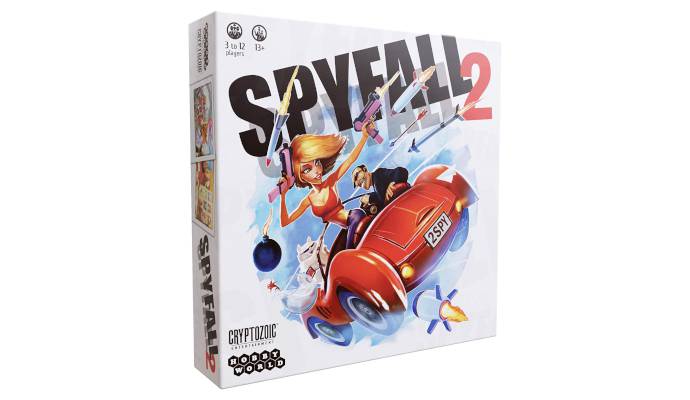
Players supported: 3 to 12 players
Average playing time: 15 to 30 minutes
As of this writing, there are three games in the Spyfall series and they're all variations of the same core gameplay so feel free to go with any of them. Of the three, I'm most partial to Spyfall 2.
In Spyfall 2, everyone is dealt the same exact card that depicts a particular location—except for one person who's dealt a Spy card. That person doesn't know the location and must figure it out via context.
Players take turns asking each other questions, trying to suss out who the Spy is based on their answers. Players want to give reasonable responses so others know they aren't the Spy, but the answers need to be vague enough that the Spy won't figure out the location.
For example, if the location is Library, you might ask "Why are we here?" and the player might answer "To check some things out."
At any point, someone can accuse another of being the Spy and everyone takes a vote. However, the Spy can also end the game if they think they know what the location is.
3. So Clover!
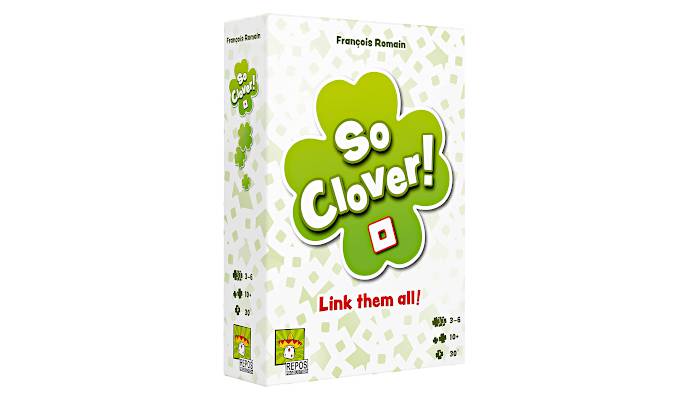
Players supported: 3 to 6 players
Average playing time: 20 to 40 minutes
Of all the games on this list, So Clover! is the most hands-on as far as components are involved. However, it's such a good fit as a board game for drinking that it absolutely has to be on this list.
In So Clover!, players are given four pairs of words that they need to bridge by providing a word for each pair that connects those pairs. For example, if you're given "Biscuit" and "Cat," maybe you write "Knead."
Then everyone else works together to reverse engineer your words by matching your bridge words with the provided pair words.
If you like cooperative word association games like Codenames but wish there was a simpler option to play while drinking—one that you could easily take to a pub—then So Clover! is a must-have.
2. Skull
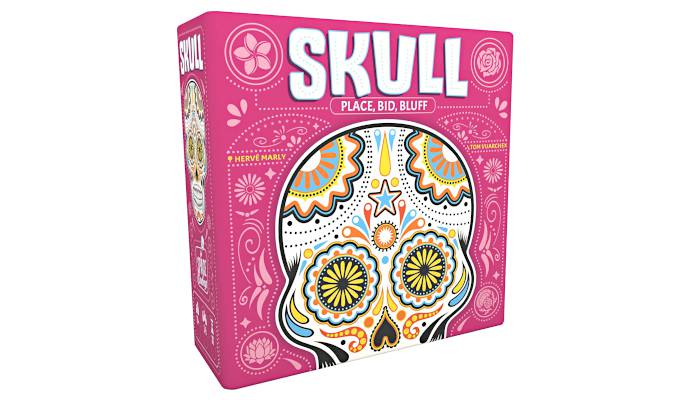
Players supported: 3 to 6 players
Average playing time: 15 to 45 minutes
Skull is a top contender for best board game for drinking. I mean, the game is literally played using coasters rather than cards and it's designed to be played in pub-like settings.
There have been several bluffing games on this list already, but Skull is the ultimate bluffing game. There's nothing else besides bluffing here—and that's made all the better when drinks are involved.
In Skull, each player has four coasters: three Roses and one Skull. They take turns playing their coasters face-down until someone declares a number. That number is how many coasters they think they can flip without revealing any Skulls.
Of course, other players can outbid that person and claim an even higher number. Once no more bids are made, it's the moment of truth!
Skull can be played anywhere and the game itself leaves tons of room for socialization. Even if you spill your drink, it's fine—these are, after all, coasters meant for drinks. That's why Skull is the best for drinking.
1. Monikers
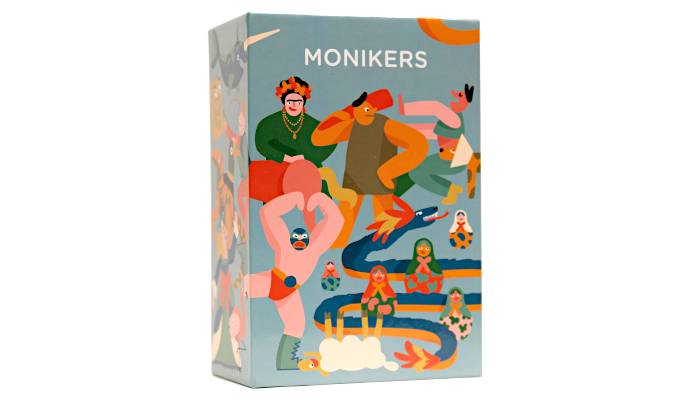
Players supported: 4 to 16 players
Average playing time: 15 to 60 minutes
For me, Monikers is the perfect game to play while drinking. Sure, it's more of an activity than a board game, but the results speak for themselves: you won't find another social game that packs as much laughter as this one with so few components.
Based on the classic game of Celebrities, you play Monikers in teams and take one-minute turns trying to get your teammates to guess the terms on your team's deck of prompt cards.
The beauty of Monikers is that it's played over three rounds. In the first round, you can say anything but what's on the card. In the second round, you can only say one word. In the third round, you have to mime.
Monikers is more than the sum of its parts. It's as much a game of callbacks and inside jokes as it is a guessing game, and it can be played almost anywhere under any circumstance. It also happens to be my favorite party game for larger groups!
